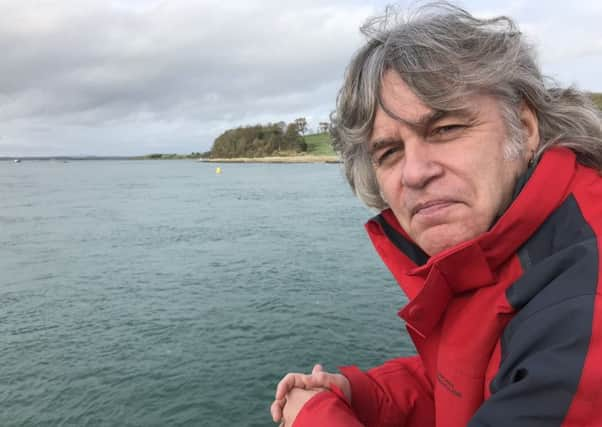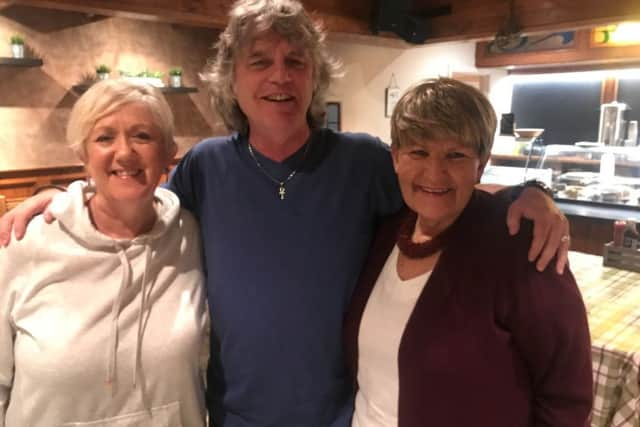Irish speaking poet tries Ulster-Scots


Damian Gorman grew up in Newcastle where he remembers “a clatter of words” which he now knows to be from the Ulster-Scots tradition.
The poet who possesses both a Bafta and an MBE also lived in Greyabbey before moving to Aberystwyth, where he has lived for six years with his wife, a Welsh native.
Advertisement
Hide AdAdvertisement
Hide AdHaving previously learned Irish, his curiosity about Ulster-Scots was the inspiration for ‘In A Quare Tongue’ which will be shown on BBC Two NI tomorrow (Sunday) night at 10pm.


He said: “I’ve been interested in words all my life. Language is what makes the heart audible. We had a teacher who came to our primary school and taught me the meaning of my name. Gorm is the Irish word for blue. Gorman were the people whose hair was so black it had a blue sheen off it. I thought, ‘wow’. I was about nine, I wanted to find out more.
“I started to learn Irish, I went away on summer courses. It’s important to me.
“I understand that there are people from the same bit of ground as I am who speak Ulster-Scots to whom that is equally important. I wanted to find out more.
Advertisement
Hide AdAdvertisement
Hide Ad“My dad would have used Ulster-Scots expressions at home before I realised what they were. He’d say things like ‘red up’ and called us gaunches, or better, carnaptious gaunches. One of my favourite words in any language is the word ‘thran’.”
For the programme Damian returns to the Ards peninsula as he tries to understand why, for so many people, Ulster-Scots and its literary heritage is still important and relevant today. He reconnects with Hugh Robinson, who helped him start a writers’ group there, and spends time with native speakers and scholars including Carole Gilmore and Elaine McFeeters.
Of the Irish language act which has seen red lines drawn at Stormont, and the limited use of Ulster-Scots in the Province, Damian said: “In our part of the world there are difficult conversations still to be had and that being the case I just think we need all the language we can get.”
In his spare time Damian teaches conversational English to a group of Syrian refuges in Wales: “As has been pointed out to me I’ve passed on quite a bit of Ulster–Scots. There are people from Aleppo and Homs who are running round Aberystwyth using words like ‘red up’ and ‘carnaptious’.”